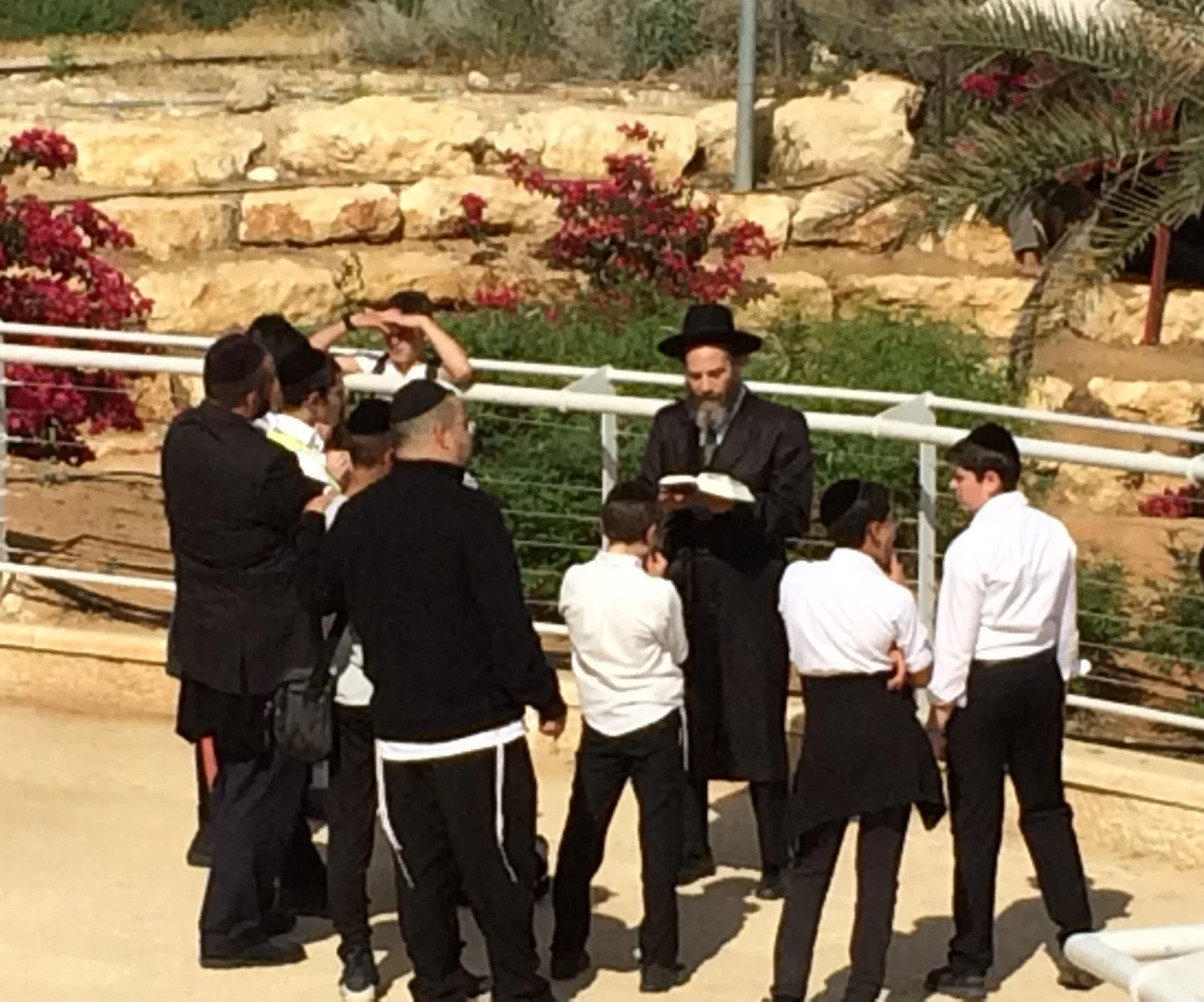Dear one,
As I gazed about me, I heard within me these words: “Be thou my vision, O’ Lord of my heart, not be all else to me save that thou art …” Before me stood the gold-plated Dome of the Rock; near me the ancient walls; and above me, amid a blue sky, darkening clouds to the west. Early we had awakened and by 7:30am we were on the Temple Mount: draped in brown and black, a lone woman sat in the northeast corner, reading; relaxed, gun-bearing soldiers congregated near an olive tree; workmen fitted pipes together, to which prayer awnings would be attached; and black-garbed and -bearded men strode with intent. Wherever I looked, quiet prevailed, even though the wind chilled, and the walls, stone pavement, and intricate mosaic of the Dome proclaimed centuries of conflict, collapse, conquest, and consolation. As I stood against a small, stone edifice, seeking the warmth of sunlight, I knew that the moment before me escaped my comprehension—and still I hummed: “Be thou my vision …”
As I watched, I wondered: Centuries ago, perhaps very near where I stood, what did Jesus observe? Did He note that persistent, human striving for the One who is our Creator? Did He sense a desire to appease the One who granted us life? Did He recognize a longing to know purpose and meaning—but especially love—often thwarted by callous religious leaders? Or when He watched, did He feel the pain of those, who had submitted to a grim resignation: “We are caught within a cyclical vortex beyond our control and comprehension”?
Of course, my questions are speculative; and yet, as I walked about the Temple Mount, I could deny neither Jesus’ humanity nor His egocentricity: “All of you who are weary and burdened, come unto me and I will give you rest” (Matthew 11:28). That is, if this declaration and promise are true, which I believe they are, then they are fully consistent with the hope He provided a paralytic: “Child, your sins are forgiven” (Mark 2:5), and equally consistent with His word to a woman demeaned: “Does no one condemn you, then neither do I; go and sin no more” (John 8:11).
What did Jesus observe—I can only speculate? Even so, my few days in Israel have led me to believe that He saw neither Jew nor Gentile—or in our day, neither Muslim, Catholic, nor Orthodox—but those beloved by His Father, even if lost.
Returning home,
Stan
